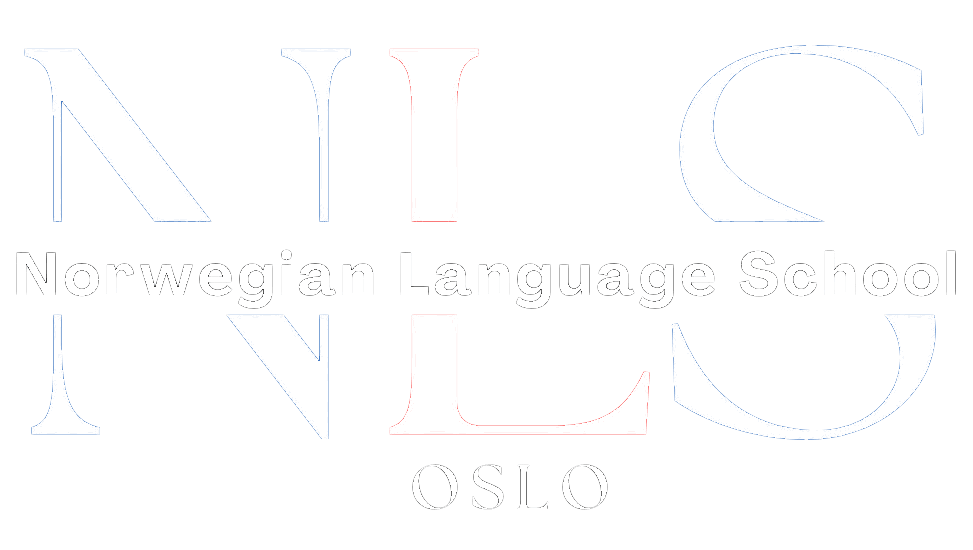

A Comprehensive Guide to Official German Language Tests
German is one of Europe’s most widely spoken languages, serving as a key to numerous academic, professional, and cultural opportunities. Whether you’re aiming to enroll at a university in Berlin, secure a business contract in Zurich, or simply immerse yourself in Goethe’s literary heritage, possessing strong German skills can significantly expand your horizons. One of the best ways to demonstrate your language proficiency is to obtain an official certification through a standardized exam.
In this article, we’ll take an in-depth look at two of the most recognized German proficiency tests: TestDaF (Test Deutsch als Fremdsprache) and the Goethe-Zertifikat. We will explore the structure, levels, preparation strategies, and benefits of each exam. Moreover, we’ll discuss how to choose the right test for your goals, potential fees, and test-day advice. Lastly, we’ll highlight how NLS Norwegian Language School in Oslo can help you achieve success in these exams—offering structured courses, personalized feedback, and specialized guidance. If you’re ready to begin your journey toward German proficiency, make sure to check out their programs here:
https://nlsnorwegian.no/german-test-preparation-testdaf-and-goethe-zertifikat/.
Table of Contents
Toggle1. Why Pursue an Official German Language Certification?
- University Admissions
Germany is renowned for its robust higher education system, home to top-ranking universities like the Ludwig Maximilian University of Munich, Technical University of Berlin, Heidelberg University, and more. Many of these institutions offer programs taught in German and may require proof of language proficiency at the B2 or C1 level, depending on your field of study. A recognized certificate—such as TestDaF or Goethe-Zertifikat—often serves as a gateway to admission. - Professional Advancement
Mastery of German can be a valuable asset in various industries, from automotive and engineering to finance and tourism. If you wish to work in a multinational company with headquarters or significant branches in Germany, Switzerland, or Austria, possessing an official certificate in German can set you apart from other candidates and confirm your capability to communicate effectively in a German-speaking environment. - Immigration and Visa Requirements
In some cases, residency or work permit applications may require documented proof of German language proficiency. Having an official certificate can expedite legal processes and demonstrate your integration readiness, particularly in Germany and Austria. - Personal and Cultural Enrichment
Even if you’re not pursuing formal studies or looking for a German-speaking job, obtaining a certification is a powerful motivator. It gives you a structured goal, a sense of accomplishment, and a chance to delve deeper into the culture. From reading newspapers to appreciating films or literature in the original language, advanced proficiency enriches your personal growth and cultural understanding.
2. Overview of Major German Proficiency Tests
While multiple exams exist—like telc, TestDaF, Goethe-Zertifikat, and DSH—TestDaF and Goethe-Zertifikat remain two of the most widely recognized certifications for German as a foreign language.
2.1 TestDaF (Test Deutsch als Fremdsprache)
- Focus: Academic German for foreign students aiming for university admissions in Germany.
- Administered by: TestDaF Institute, headquartered in Hagen, Germany.
- Levels: The test results are expressed in TDN (TestDaF-Niveaustufen) 3, 4, or 5, corresponding roughly to levels between B2 and C1 of the CEFR (Common European Framework of Reference for Languages).
- Sections:
- Reading Comprehension
- Listening Comprehension
- Written Expression
- Oral Expression
Most German universities require at least TDN 4 in each section for acceptance. TDN 5 indicates an even higher proficiency level and can be an advantage if you aim for competitive programs or scholarships.
2.2 Goethe-Zertifikat
- Focus: General language proficiency, offered from A1 (beginner) to C2 (highly advanced).
- Administered by: The Goethe-Institut, a global institution promoting the German language and culture.
- Levels: A1, A2, B1, B2, C1, and C2, fully aligned with the CEFR.
- Sections: Each level tests four skills—reading, listening, writing, and speaking—though the specific format changes slightly by level (e.g., simpler tasks at A1 vs. complex discussions at C2).
The Goethe-Zertifikat is recognized worldwide by employers, universities, and government agencies. If you need proof of German skills for reasons beyond academia, the Goethe-Zertifikat is an excellent option.
3. CEFR Levels Explained
The Common European Framework of Reference for Languages (CEFR) categorizes language skills into six levels:
- A1 & A2 (Basic User): You can handle everyday expressions, introduce yourself, ask basic questions, and understand very simple information.
- B1 & B2 (Independent User): You can manage daily interactions more confidently, discuss familiar topics in some depth, and produce clear, connected text on a variety of subjects. B2 typically serves as a minimum requirement for academic or professional contexts.
- C1 & C2 (Proficient User): You can understand long, demanding texts, communicate fluently, and express nuanced opinions. At C2, you operate near-native-level proficiency, handling advanced academic or professional tasks with ease.
For university studies, a B2 or C1 certificate is often required. For professional roles, the desired level can vary, but B2 is commonly considered “workable,” while C1 or C2 opens up broader opportunities, especially in specialized fields.
4. TestDaF in Detail
- Exam Format
- Reading: Typically includes 3–4 texts of varying complexity. Questions may range from multiple-choice to true/false or short answers.
- Listening: Could involve dialogues, radio news segments, or short lectures. You must answer comprehension questions afterward.
- Writing: Focuses on academic writing tasks—e.g., interpreting data from charts or graphs, writing a short essay on a given topic, or summarizing an excerpt.
- Speaking: Usually completed via computer. You respond to simulated scenarios, such as discussing a study-related issue, arguing a position, or giving a brief presentation.
- Scoring
Each of the four skills is graded on a scale of TDN 3 to TDN 5. If you aim to enroll in a German university, you’ll likely need TDN 4 in all sections. TDN 5 reflects a higher-level performance akin to solid C1. - Who Should Take TestDaF
- Those who want to study at a German university.
- Students who need an academic language test recognized by most higher education institutions in Germany.
- Individuals who plan to conduct research in German-speaking academic circles.
- Preparation Timeline
Depending on your current German level and your target TDN, preparation can range from a few months (if you’re near B2 already) to over a year (if you’re still at the A2/B1 stages). Creating a structured study plan that emphasizes academic vocabulary, listening skills for lectures, and writing practice is essential.
5. Goethe-Zertifikat in Detail
- Exam Levels
- Goethe-Zertifikat A1: Basic expressions, simple interactions.
- Goethe-Zertifikat B2: Confident communication in common and some specialized contexts; read and write short texts with moderate complexity.
- Goethe-Zertifikat C1: Near-fluent conversation, thorough comprehension of challenging texts, ability to produce clear and structured essays on complex topics.
- Goethe-Zertifikat C2: Mastery close to native-level usage, handle academic, literary, and technical texts with ease.
- Exam Format
All levels evaluate reading, writing, listening, and speaking. For advanced levels (B2, C1, C2), the tasks involve more complex tasks, such as crafting an opinion piece, summarizing articles, or presenting and debating real-world issues. - Scoring
The final score is often expressed as a percentage or points. You need a certain threshold (often 60% or above) to pass. Check the specific details for your chosen level, as the passing criteria can differ slightly. - Who Should Take the Goethe-Zertifikat
- Professionals requiring a widely recognized certificate for work or visas.
- Students not strictly focused on academic study in German but wanting a recognized credential.
- Anyone seeking comprehensive or advanced validation of their German, from absolute beginner (A1) to highly proficient (C2).
- Preparation Timeline
As with TestDaF, the time you’ll need depends on your starting proficiency. If you aim for B2 but are currently at A2, you might require anywhere from 6 to 12 months of consistent study.
6. Deciding Which Test is Right for You
- Academic Focus
If your main goal is university admission in Germany, TestDaF is specifically designed for that purpose. Some universities also accept Goethe-Zertifikat B2 or C1 for admission, but TestDaF is standard for demonstrating academic readiness. - Broader Applications
If you want a versatile certificate that you can use for both professional job applications and personal goals, the Goethe-Zertifikat might be more suitable. - Testing Locations and Dates
Check which exam centers are available in your region and how frequently they offer each test. TestDaF has specific sessions each year, while Goethe-Institut centers may hold exams regularly. - Preferred Format
Some test-takers prefer the paper-based format, others the computer-based method. TestDaF’s speaking section is often recorded via a headset, while the Goethe-Zertifikat typically involves direct conversation with examiners (though this may vary by test center).
7. Effective Preparation Strategies
- Formal Courses
Enrolling in a structured course can accelerate your learning process. A quality language school will address all four skills—reading, writing, speaking, listening—while integrating grammar practice. If you’re in Oslo, consider taking a specialized program at NLS Norwegian Language School, where you’ll receive targeted training for TestDaF or Goethe-Zertifikat from experienced teachers. - Self-Study Resources
- Textbooks: Look for materials specifically tailored to your chosen test, such as “Mit Erfolg zum TestDaF” or official Goethe-Zertifikat prep guides.
- Online Platforms: Duolingo, Babbel, or Deutsche Welle’s free courses can supplement your grammar and vocabulary.
- Practice Tests: Obtain official sample exams from the TestDaF or Goethe websites. Timed mock tests are invaluable for grasping the test format and pacing.
- Focus on Weak Areas
Whether it’s grammar, pronunciation, or writing fluency, identify your main challenges early. Work intensively on them while still allocating time to maintain strengths. - Immerse Yourself
- Reading: Dive into German newspapers (e.g., Die Zeit, Der Spiegel, Frankfurter Allgemeine Zeitung) or short stories.
- Listening: Watch German TV series, YouTube channels, or listen to podcasts. Notice how native speakers use intonation and transition words.
- Speaking: If possible, find a language exchange partner or join German conversation groups.
- Writing: Keep a journal in German, compose opinion pieces about current events, or answer sample prompts from practice tests.
- Review and Feedback Loop
Consistent feedback is essential. Have a teacher or advanced speaker correct your writing and speaking, pointing out not only grammar mistakes but also clarity and coherence issues.
8. Exam Day: Practical Tips
- Arrive Early
Rushing can elevate stress. Arrive at least 30 minutes before the scheduled start, ensuring you have time to settle in. - Check Your Documents
Bring a valid ID (passport, national ID, or whichever is required) and your exam admission ticket. Verify well in advance what documents are needed. - Time Management
- Reading and Listening: Practice scanning techniques (skimming for main ideas, scanning for details) beforehand. If a question stumps you, move on and return later.
- Writing: Outline your ideas briefly to organize your essay. Keep an eye on the clock, leaving a few minutes for proofreading.
- Speaking: Breathe, speak clearly, and don’t worry too much about small errors—fluency and coherence often matter more than absolute perfection.
- Stay Calm
Nervousness is natural, but deep breathing exercises or a brief moment of mindfulness can help you refocus. If you make a mistake, don’t dwell on it—simply correct yourself and continue. - Adhere to Instructions
Read each instruction carefully. If you are unclear about a directive, ask the exam proctor (if permissible).
9. After the Test: Results and Next Steps
- Receiving Scores
- TestDaF: Results typically arrive a few weeks after test completion. You’ll get a certificate detailing your TDN score per section.
- Goethe-Zertifikat: Depending on the testing center and exam level, it can take from a few days to a few weeks to receive your official score and certificate.
- Interpreting Your Performance
Celebrate your accomplishments, but also note any weaker sections to continue improving. If you didn’t meet the requirement for a particular university or job, you can often retake the exam. - Certificate Validity
Most language certificates don’t have an official expiration date. However, certain institutions (universities, immigration offices) may require a certificate taken within the last one or two years. Check the specific policies for your intended application. - Maintaining and Advancing Your Skills
Passing an exam is a milestone, not the end of your learning journey. Keep reading, speaking, listening, and writing in German to maintain and further improve your newly validated skills.
10. Harnessing Support from NLS Norwegian Language School in Oslo
One of the most reliable ways to ensure you’re fully prepared for TestDaF or the Goethe-Zertifikat is to seek guidance from seasoned professionals. NLS Norwegian Language School in Oslo offers dedicated courses designed to:
- Assess your initial level: You’ll start with a placement test or consultation to determine your strengths and weaknesses.
- Target all four skills: Classes cover reading comprehension, listening practice, writing techniques, and speaking drills relevant to your chosen exam.
- Provide detailed feedback: Written assignments and spoken practice sessions are corrected with personalized tips for improvement.
- Simulate real exam conditions: Timed practice tests help you become comfortable with the actual exam structure and pacing.
For more information or to register for a German proficiency test course, visit:
https://nlsnorwegian.no/german-test-preparation-testdaf-and-goethe-zertifikat/.
Whether you’re a student aiming for TDN 4, a professional seeking B2 for a new job, or a language enthusiast reaching for C1/C2 mastery, NLS Norwegian Language School provides the supportive environment and proven strategies you need.
11. Conclusion
Securing an official German language certificate—be it TestDaF or Goethe-Zertifikat—enhances your prospects for university admission, career advancement, and broader cultural engagement. By aligning with a globally recognized standard of proficiency, you demonstrate dedication, linguistic competence, and readiness to thrive in German-speaking contexts.
To choose the test that best fits your objectives, clarify whether your focus is academic or general. Then, adopt a balanced study plan that strengthens each of the four language domains. Incorporate authentic materials, real-world tasks, and regular feedback. On exam day, manage your time and anxiety by pacing yourself and adhering to instructions.
Finally, consider enlisting the support of NLS Norwegian Language School in Oslo, a trusted partner in comprehensive test preparation. Through structured coursework and professional insights, you’ll build the skills and confidence to succeed. With diligence, perseverance, and the right guidance, you’ll soon possess a German language certificate that can open new doors—both academically and professionally.
If you want to learn Norwegian, you can register for classes here. We look forward to hearing from you and helping you become fluent in Norwegian.






